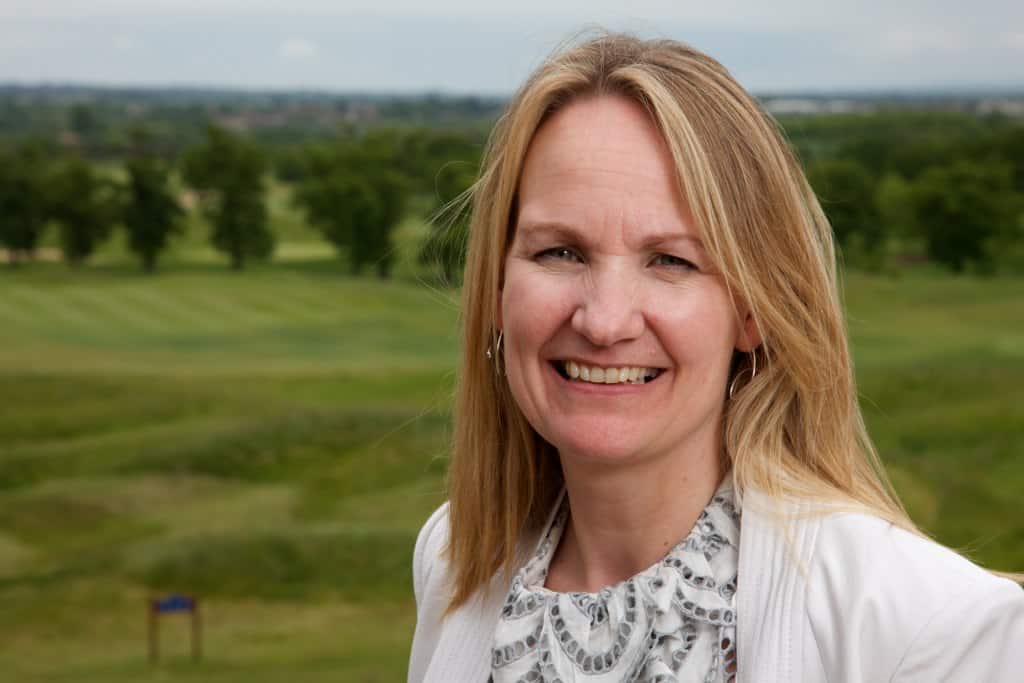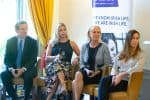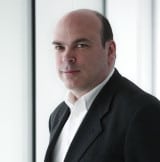Sara Daw, CEO, The FD Centre in Ireland
Sara Daw, CEO of The FD Centre in Ireland, talks the ‘Future of Work’ and SME businesses wanting to scale up.
Q. What are your main priorities and goals in your role?
I aim to keep a balance between the commercials and cultural aspects of The FD Centre. Commercially we want to do well and achieve our goals and we want to do it in a way where we enjoy the journey and live our values of being open, progressive and passionate.
I focus on setting and keeping the context for the business both commercially, i.e. delivering our long-term vision and achieving our yearly plans and goals, as well as ensuring we all stay culturally aligned along the way. This translates into making sure we attract the top Finance Directors (FDs) and staff to our business whilst managing the energy over time and focussing on coaching others to develop them and deliver succession for the future.
With the very best FDs in our business we allow SMEs access to this expertise, which enables them to define and ultimately achieve their goals quicker and with more certainty. This is truly rewarding for the FD as well as the client so the relationship with the client gets stronger as time goes on. The key thing is the culture we have within our company, which attracts the FDs to us in the first place.
Q. What are your biggest challenges as a CEO?
Our vision and what gets me up in the mornings, is to build the industry of the provision of part-time FDs in Ireland for those SME businesses typically with turnover between €2 million to €50 million, who don’t want, don’t need and cannot afford a full time FD, yet recognise they need the skill set on an ongoing basis or for particular situations as they arise. Our purpose is to build relationships that make a real difference to both our FDs and our clients to give us all more freedom and success.
The business model we have created allows SMEs access to tier-one FDs on a part-time basis. This means they can access 100% of the expertise and a great support structure at a fraction of the cost of a full time FD. It also gives the FD the freedom to work flexibly and at a level of days per month, which fits with their personal goals.
The market in Ireland is becoming very receptive to this business model and we work hard to support our FDs for the initial 6-12-month period as they change careers to become a part-time FD and learn the skills needed to build a portfolio of clients.
Building this new industry in Ireland and further afield, as we are a global business operating with 70 virtual teams across 15 countries, means that staying aligned culturally and commercially is a constant challenge.
The distances involved and virtual nature of our teams, who work within our clients rather than going to a central office, means that communication and spending time together is also a challenge. To overcome this, we prioritise conferences within countries twice a year, hold monthly team meetings and use technology for regular video conferencing. We have also built our own learning management system for remote training and development. We commit to our clients to stay on top of our game and dedicate to eight days training per year for all our team members so that we can always get the answers for our clients.
Q. How do you keep your team/staff motivated?
I think the key here is to make sure everyone in our business has a personal purpose, which is aligned with our company purpose of making a real difference for our clients. When team members are connected to the reason why a company exists then this provides the platform for us all to work together to achieve it.
Within The FD Centre, not only are we building the industry of part-time FDs, we are also creating a new way of working. Our business model is quite disruptive as our FDs are not employed and choose to accept our invitation to work in our teams as they are seeking freedom from corporate life. We have created a business model of team-based portfolio working, which changes our lives and lives of our clients forever. We believe that we don’t need to be employed anymore to be committed and deliver value to our clients – this is a new way of working, and we see it as the ‘Future of Work’. We are absolutely passionate about delivering this Future of Work to more and more FDs as we build our industry.
Our FDs find this new way of working where they have a portfolio of SME clients each of whom they work with from 1 day per month to say 2-3 days per week, as liberating. They are part of a local, national and global team of FDs and are fully supported by their 400 colleagues globally to always deliver the right result to our clients, yet they have the freedom and flexibility in how they arrange their time each week and month. Our FDs are only working when they are adding value. So the work becomes much more fulfilling compared to working with just one business and they usually find they are more productive with a smaller number of working hours.
Q. What are the challenges facing your industry going forward?
Given we are creating a new industry here, of the part-time FD, our main challenge as market leader is to educate the market that our offering is available to both FDs seeking a new career and to clients who can benefit from reaching their goals faster with our help.
We are building out our business in Ireland with presence across the country and we are investing in education. We are comfortable being first to market, yet we recognise it takes time to build up awareness within the business community.
Q. What new trends are emerging in your industry?
We are part of the gig economy. Since we started in the UK in 2001, we have seen a growing number of FDs seeking a different way of working, wanting to have more freedom and flexibility in their lives, whilst working with a portfolio of SME clients where they can make a difference. This trend is continuing globally and Ireland is no different.
Within our SME clients we see a trend of these businesses wanting to scale up. We also see many SMEs with global ambitions. The global market seems more reachable, yet it is still complex. Most SME businesses don’t have a strategic and commercial finance skill set within their business, and this is what we strive to address. With our model, our clients can access the finance skills they need to navigate the complexity and uncertainty in their markets at the level they need and can afford.
Q. Are there any major changes you would like to see in your sector?
We see a lot of SME businesses wanting to scale up and given that SME businesses are the backbone of our economy, we believe there needs to be more focus on these businesses. Scale ups are those businesses past start-up phase, and so are too big to be small, yet are also too small to be considered big! The Scale Up Institute uses the definition:
“Scale ups are enterprises with average annual growth in employees (or in turnover) greater than 20% a year over a three year period, and with 10 or more employees at the beginning of the observation period”.
At The FD Centre, we believe that scale-up issues start to bite at about €1m sales revenue or a minimum of 10 employees and by the time a business reaches €50m sales revenue or 250 employees, they can most often be considered a ‘scaler’; they are past the main dangers of scale up.
We help our clients to scale more quickly than their competitors and with more certainty and less risk. Not only do these businesses need financial help, but also talent and skills, capability to build leadership capacity, access to markets and infrastructure. Given these businesses are the future of our economy we fully support more focus on developing these organisations.
In addition, all of our clients are entrepreneurs and are responsible for taking a risk with their money and/or careers to create something new. When they are working they should have at least the same tax allowances as the people they employ. For the small minority who achieve a successful exit from their business, they should be entitled to a much-improved tax-free gain.
Q. As an employer are you finding any skills gaps in the market?
We only invite the top 1% of FDs to be part of our team and our entry baseline is set very high to ensure we give the best possible service to our clients. I am pleased to say that we have been able to attract the FDs we require to date and as our industry becomes more well known the trend we observe is that more and more are attracted to work in this new way and approach us to join.
With our staff members, our philosophy is to develop from within our business. With all new joiners we look for cultural alignment and attitudinal attributes which fit with our profile of what we think it takes to succeed in this changing economy and then invest in development and training to ensure that happens.
The business environment that we operate in, and that of our clients, is very dynamic. In order to maintain our premium service to clients as part-time FDs we have to be flexible, strategic and commercial in the way we deliver our service.
Q. How did your strategy develop in the context of the banking crisis and economic crisis?
The crises in recent years denied our clients access to traditional funding, in particular, at a time when business was in decline. Businesses found that it was just not an option to ‘fly blind’ with respect to their financial position.
As a result, more business owners than ever required our services during these times as it was crucial for them to have a firm grip on their cash flow and profitability along with visibility on the future to make the right decisions. This resulted in these businesses becoming more profitable today with typically lower levels of debt.
During this time and to this day we work very closely with the banks and other funders to understand exactly how we can support our clients.
Q. How will Brexit affect you, or have you started to feel the effects already?
We are investing in fully understanding the impact of Brexit for our clients. Strong financial management during this time is vital and we are sharing knowledge internally across all our teams to meet this need within our clients as the impact of Brexit unfolds.
Given we have teams in many countries, we are particularly looking at how we can help our clients restructure to manage the risk and grab hold of any opportunities through a more global strategy.
We have a strong presence in the UK (with circa 200 Finance Directors) and we are well prepared to give our clients in Ireland a foothold in the UK.
Likewise we have a large number of clients in the UK looking to us to help them establish a base in Ireland.
Q. How do you define success and what drives you to succeed?
The FD Centre has 3 fundamental values:
- Open – real and caring
- Progressive – learning and growing
- Passionate – energetic and fun
As CEO, I want our clients and teams of FDs to experience all of these values as we build our businesses together. It is very much a holistic approach to the way we operate.
Ultimately we want to deliver our vision of creating the Future of Work and build the part-time FD industry across Ireland and globally. What drives me is to see our teams and clients achieve their goals and aspirations along the way with us delivering on our purpose of making a real difference. That is real success for me.
Q. What’s the best advice you’ve been given, or would give, in business?
“Go for the Gap, i.e. when you’re on top of your game, change your game” (from Legacy by James Kerr, What the All Blacks Can Teach Us About the Business of Life).
The business environment that we operate in, and that of our clients, is very dynamic. In order to maintain our premium service to clients as part-time FDs we have to be flexible, strategic and commercial in the way we deliver our service. We are very focused on working with our clients to ensure that they experience better clarity in making decisions and more success in achieving their goals. By doing this well the part-time FD becomes a long-term relationship in the business.
Q. What have been your highlights in business over the past year?
2017 has been a very successful year for The FD Centre. We have continued to grow globally and have built up a number of ‘sister’ businesses which provide Marketing, IT, Sales, Legal and HR Directors on a part-time basis. This complements the offerings of our part-time FDs.
In Ireland, we have been very successful in building out our business model throughout the country. The feedback we are receiving from our Irish clients has been very positive. I think that Irish business owners are finding that a part-time FD is particularly beneficial in helping them with cash-flow and profit management, implementing reporting systems, clarifying their strategic goals, mitigating risks and overall decision making.
Q. What’s next for your company?
As a company we are constantly evolving and looking at ways to attract and retain the best FDs and to keep improving for the benefit of our clients. Although the role is part time, our FDs keep their clients’ interests in mind at all times. We will continue to build The FD Centre brand throughout Ireland, and look at developing sister businesses similar to those we have globally in due course.
Q. What opportunities or plans for growth do you see in 2018?
We will continue to build the part-time FD industry and build more teams in Ireland, focusing on the major cities and also making sure we have coverage with team members who can serve the more rural areas, so that all SMEs have the opportunity to access our services.
We have been growing our business model for 16 years and developed a lot of IP around the way we deliver our service to ensure that our clients get the maximum benefit of having a part-time FD. This helps our clients make more money, reduce their business risk and generate more time to do the things that they are good at!
To support our vision and purpose, I am also writing a book on The Future of Work, with our chairman, Colin Mills, to share with others how to work differently like we do at The FD Centre. We need to finish the book in 2018 and get it published!
Q. Where do you want your business/brand to be this time next year?
To continue to be the global and Irish number 1 provider of part time FDs. I believe that our business model is very suited to the Irish economy due to the flexibility that we can offer without the need for an onerous long- term contract or employer taxes for our engagement. This provides a very cost-effective solution for our Irish clients, while giving them access to our global network of FDs. It’s the future!
The original concept for The FD Centre was to provide the skill sets of experienced Finance Directors of large corporations to the small- and medium-sized enterprise (SME) sector, allowing smaller organisations to benefit from the expertise of a highly-experienced Financial Director without incurring the expense of hiring someone full time.
The part-time FD concept caught on quickly and the business has grown rapidly on a national scale. Over the last 15 years The FD Centre has become the largest and most respected provider of part-time Finance Director services in the UK.
The FD Centre has now expanded across the world to be the global No. 1 provider of part-time FD and CFO services.







